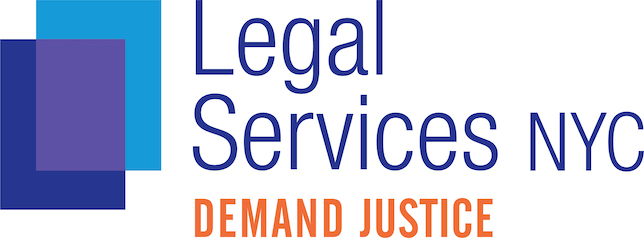December 7, 2017, NEW YORK, NY— Legal Services NYC’s Bronx program, Immigrant Justice Corps, Alaska Immigration Justice Project, and WilmerHale today filed a federal lawsuit on behalf of nine Lawful Permanent Residents from New York, Massachusetts, and Alaska, who are statutorily eligible to apply for citizenship, but who have mental health or cognitive impairments which make it impossible for them to learn English and pass the English and civics tests ordinarily required to become U.S. citizens. The lawsuit was filed against the Department of Homeland Security and the United States Citizenship and Immigration Services (USCIS).
Press coverage: Telemundo
Even though federal law exempts permanent residents with a physical or developmental disability or mental impairment from the English and civics requirements of naturalization, many naturalization applicants with disabilities are still subjected to the testing. To obtain a waiver, applicants can have a medical professional complete a form documenting the applicant’s disability or impairment.
Today’s action is necessary because USCIS representatives are routinely substituting their own judgment for the judgment of medical professionals, in violation of USCIS regulations. Stereotypes about individuals with disabilities often prejudice the evaluation of applicants’ waiver forms—for example, an officer may decide that an applicant is unable to learn a new language or new information due to lack of education rather than a disability, or simply refuse to believe that an applicant is disabled because the disability is not readily apparent. In other cases, waivers are rejected and applications denied simply because the applicant’s doctor is unable to explain the medical origin of diseases whose medical origin is unknown (such as Alzheimer’s Disease).
The defendants also routinely fail to provide applicants with meaningful notice of the reasons why their waivers have been denied. As a result, many applicants resubmit the forms at a second interview without knowing what was wrong with the original form. If the form is rejected again at the second interview, and the applicant again does not pass the English and civics test, their application for citizenship is denied.
“I want to become a citizen because I have learned that in this country, it is not sufficient to just be a resident,” said plaintiff Soraya Frances De Dandrade through an interpreter. “The biggest frustration is being in front of an officer that has in front of him all my medical evidence showing that I’m unable [to take the exam], and have to see that they dismiss all the medical evidence. When I leave there I feel like I’m going to go crazy because I don’t understand, and I feel like my future is ending.”
"When people with disabilities are denied the opportunity to become citizens because they cannot pass the exams, and their waiver applications are improperly rejected, they are effectively being denied fundamental rights including the right to vote, denied eligibility for critical government benefits, and denied a sense of belonging in their adopted homeland,” said Isabel Heine, Staff Attorney at Bronx Legal Services. “This is a unique injustice that isn’t experienced by non-disabled applicants.”
Along with the individual clients, plaintiffs also include two non-profits: Youth Ministries for Peace and Justice in New York and Project Citizenship in Massachusetts. Both organizations provide assistance to permanent residents who are seeking to naturalize.
“Our clients and pro bono attorneys are frustrated by USCIS’s failure to defer to a doctor’s determination of disability,” said Veronica Serrato, Executive Director of Project Citizenship. “We are forced to expend additional, unnecessary resources to help clients seeking a waiver based upon their medical disability due to USCIS’s inconsistent, arbitrary procedures. The lack of fairness and uniformity of practice impedes our ability to achieve citizenship for disabled clients who, without a medical disability waiver, have no path to citizenship. USCIS’s practices cause stress, anxiety, and uncertainty for many elderly and disabled clients who, for example, suffer from Alzheimer’s or dementia.” Project Citizenship is represented by the law firm WilmerHale.
“Through our immigration service, we have witnessed a pattern of behavior against our disabled community members seeking citizenship,” said Youth Ministries for Peace and Justice Executive Director David Shuffler. “USCIS consistently denies their waiver requests. At best, this results in a delay of the naturalization process. At worst, it leaves our clients without the opportunity to pursue their dream of becoming a citizen. Immigration’s current system is ineffective. Without change, we will continue to see our disabled clients singled out by a harmful and defective system.”
“I am elderly now,” said plaintiff Obdulia Ruiz through an interpreter. “You hope a process will be easier for someone my age. What is the point of treating elderly and disabled individuals so poorly? Why leave me with such uncertainty? I was hoping to become a citizen to feel more secure in this country…Now that feels like it isn’t an option, although this case gives me hope.”
The lawsuit was filed in U.S. District Court for the Southern District of New York, and alleges violations of the Immigration and Nationality Act, the Administrative Procedures Act, the Rehabilitation Act, and the United States Constitution.
###



